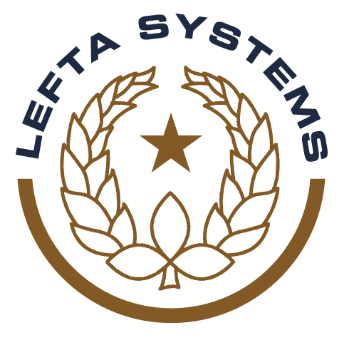JACKSONVILLE — As a law–enforcement officer for more than 20 years, Bryan Selzer wrote a lot of paper–based, time–consuming, on–the scene reports.
Police officers across the nation spend much of their time just writing reports.
“When I talk to people about this, they are actually surprised how much paperwork police officers have to do as part of their job. So anything that automates a process or eliminates duplication for police officers is welcomed with open arms,” said Selzer.
After retiring from his career as a police officer, Selzer in 2006 founded LEFTA Systems. He is the chief executive officer of the growing firm. The acro- nym stands for Law Enforcement Field Training Application (www.LEFTASystems.org).
“I grew up in an entrepreneurial family,” he said. “My parents were small–business owners. They had a pastry shop. I never knew I had the entrepreneurial bug. But having worked in law enforcement, I was able to identify a shortcoming when it comes to documenta- tion in the field, the way things are being documented by police officers and how they are tracked. That put me on the path to becoming an entrepreneur. The first software product that we created was for training new officers.”
He added, “Whenever a new officer is hired, he or she must participate in a field–training program. For three or four months, the new officer rides along with the training officer. During the training program there is a tremendous amount of paperwork involved. I thought there had to be something better than paper. That’s how I got started in this business.”
Today, his company’s cutting–edge applications are being used at local, state, and federal levels, and with nearly 400 clients and more than 80,000 law–enforce- ment officers nationwide.
LEFTA Systems is seen as the industry leader in law–enforcement software.
Selzer says technology is the solution to addressing police–accountability issues, prioritizing post–incident transparency, and strengthening community trust and respect.
And it all starts with training. He said training is the single highest liability area for a law–enforcement agency. Proper documentation of training and field incidents are important “from the first day of the police academy to the day an officer retires,” said Selzer, adding that his company’s Training Records Management software is popular among agencies.
A comprehensive technology platform like LEFTA helps to accurately document the quality of the training a new recruit receives, assists in the demonstration of the types of calls officers may take, and equips agencies to recognize every instance of im- proper behavior or bad conduct, he said.
Implementing the right combination of technologies can allow law–enforcement agencies to create, store, and access a variety of documented training and event results that offer both deep analysis and actionable insights, said Selzer.
Since launching its first training product, Selzer’s company has built a suite of different software applications — 10 in all — for law–enforcement agencies
“I like to compare our suite to ‘Office 365’ because an agency might not use all 10 applications, but maybe seven or eight of them. The advantage of having the entire LEFTA platform of software applications is that it provides the ability for one application to communi- cate with each other application,” he said.
Locally, the Melbourne Police Department uses LEFTA’s applications.
Selzer has grown his business from one individual to 25 people. “We’ve doubled in the number of employees over the last year. We’ve been blessed and feel job is just analyzing statistical information.”
Over the past 14 years, LEFTA has been working to build better software for law–enforcement agencies and their employees. Before the pandemic, Selzer traveled as far as California working with law– enforcement agencies, showing them how his applica- tions save time and money.
Recently, his company announced it has “synced” its Force Accountability Transparency Software, or FACTS, with the Florida Department of Law Enforcement’s Florida Incident–Based Reporting System.
This integration enables agencies to submit use–of– force incident data directly to the state in a quick, seamless, and efficient manner, he said, ensuring agencies comply with FDLE’s recently published use– of–force data–collection recommendations.
FACTS is a web–based software solution designed to adapt to an agency’s use–of–force reporting require- ments. The program provides law enforcement with “a tool to facilitate vital documentation processes easily,” said Selzer.
Developed out of necessity in today’s fast–changing law–enforcement environment, FACTS allows man- agement to easily review how officers are applying force through statistical data.
“The public has been saying for years there is an issue with police using force. However, we did not have data to back that up, simply because of the way agencies collect data and share data. So in 2015, the FBI came up with the National Use–of–Force Data Collection program. It’s a voluntary program,” he said.
The FBI created the National Use–of–Force Data Collection program in partnership with law–enforce- ment agencies, to provide nationwide statistics on use– of–force incidents. The FBI began collecting this data from law–enforcement agencies on Jan. 1, 2019.
Participation in the data collection is open to all federal, state, local, and tribal law enforcement and investigative agencies. Participation is voluntary, and the FBI works closely with law–enforcement organiza- tions to encourage agencies to share this important data.
Enforcement’s Florida Incident–Based Reporting System.
This integration enables agencies to submit use–of– force incident data directly to the state in a quick, seamless, and efficient manner, he said, ensuring agencies comply with FDLE’s recently published use– of–force data–collection recommendations.
FACTS is a web–based software solution designed to adapt to an agency’s use–of–force reporting require- ments. The program provides law enforcement with “a tool to facilitate vital documentation processes easily,” said Selzer.
Developed out of necessity in today’s fast–changing law–enforcement environment, FACTS allows man- agement to easily review how officers are applying force through statistical data.
“The public has been saying for years there is an issue with police using force. However, we did not have data to back that up, simply because of the way agencies collect data and share data. So in 2015, the FBI came up with the National Use–of–Force Data Collection program. It’s a voluntary program,” he said.
The FBI created the National Use–of–Force Data Collection program in partnership with law–enforce- ment agencies, to provide nationwide statistics on use– of–force incidents. The FBI began collecting this data from law–enforcement agencies on Jan. 1, 2019.
Participation in the data collection is open to all federal, state, local, and tribal law enforcement and investigative agencies. Participation is voluntary, and the FBI works closely with law–enforcement organiza- tions to encourage agencies to share this important data.
He continued, “If a department is required by its state to keep track of that training, and if it doesn’t have the software to automate the process, it’s going to be a nightmare for the agencies involved. As a com- pany, we’re positioned to help them through the entire process. We’re looking to help more and more agencies in 2021 with our suite of products.”
Selzer says the “real solution to address police– accountability initiatives and improving community relationships is not a knee–jerk reaction. Solving the problem comes in the form of a technology that strengthens trust and accountability between law enforcement and the communities they serve. Since LEFTA Systems’ software continues to grow with an agency, our FACTS application can be easily modified as reporting procedures change.”
By directly linking to the FDLE, FACTS improves across–the–board agency accountability through data collection and analysis, prioritizes post–incident transparency and strengthens community trust and respect, he added.
Although many agencies have adopted certain technologies to improve across–the–board accountabil- ity through documentation and data collection, Selzer said the majority of data collections are still tracked primarily on paper, which can ultimately limit an agency’s ability to “proactively store and monitor incidents.”
Paper documentation “can also impact how quickly management can review and take appropriate action.” He added, “We are continually testing and improving our products. And our products are helping a lot of officers around the nation.”



